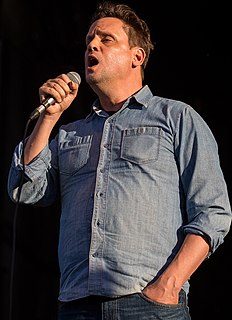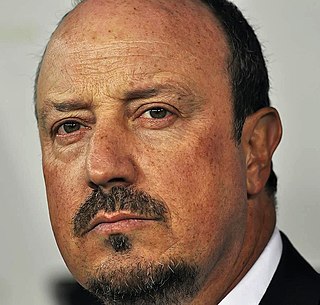A Quote by Mike Krzyzewski
During critical periods, a leader is not allowed to feel sorry for himself, to be down, to be angry, or to be weak. Leaders must beat back these emotions
Related Quotes
I would want my son to value himself as a person. To hold himself to a higher standard, and to not listen to all the stuff that's shoved down men's throats about what they're supposed to do and how they're not supposed to feel. I want him to know that he's a person and he's allowed to have emotions and be vulnerable. That doesn't mean he's not strong.
Trust is perhaps the most critical single building block underlying effectiveness. Without trust leaders do not have followers. Without trust, leaders are impotent despite great rhetoric or splendid ideas. Trust rests on the belief among followers that the leader is transparent: What you see is what there is. Trust means followers believe there is no duplicity; no manipulation just to satisfy the leader's ego. Very simply: The effective leader is transparent; that's why that person is trusted.
I hear people everywhere saying that the trouble with our time is that we have no great leaders any more. If we look back we always had them. But to me it seems there is a very profound reason why there are no great leaders any more. It is because they are no longer needed. The message is clear. You no longer want to be led from the outside. Every man must be his own leader. He now knows enough not to follow other people. He must follow the light that's within himself, and through this light he will create a new community.
Throughout my life, there's just periods when I write and periods when I don't. I don't feel like anything's really blocked. "Writer's block" sounds so dramatic and worrisome, and I don't worry about it. I know deep down that I'm a writer, and it's just a matter of time until it comes back, and when it does, it'll be good like it's always been.
The right type of [leader] is democratic. He must not consider himself a superior sort of personage. He must actually feel democratic; it is not enough that he try to pose as democratic-he must be democratic, otherwise the veneer, the sheen, would wear off, for you can't fool a body of intelligent American workingmen for very long. He must ring true.
A leader must identify himself with the group, must back up the group, even at the risk of displeasing superiors. He must believe that the group wants from him a sense of approval. If this feeling prevails, production, discipline, morale will be high, and in return, you can demand the cooperation to promote the goals of the community.
Not many of us will be leaders; and even those who are leaders must also be followers much of the time. This is the crucial role. Followers judge leaders. Only if the leaders pass that test do they have any impact. The potential followers, if their judgment is poor, have judged themselves. If the leader takes his or her followers to the goal, to great achievements, it is because the followers were capable of that kind of response.
Like all of you I'm angry. I'm angry at what's happening to our nation. Citizens, it's time to take our country back. Bombastic insults wont take it back. Political rhetoric that promises a lot and delivers little, won't take it back. All of our problems can be solved. All of our wounds can be healed by a tested leader who is willing to fight for the character of our nation.




































